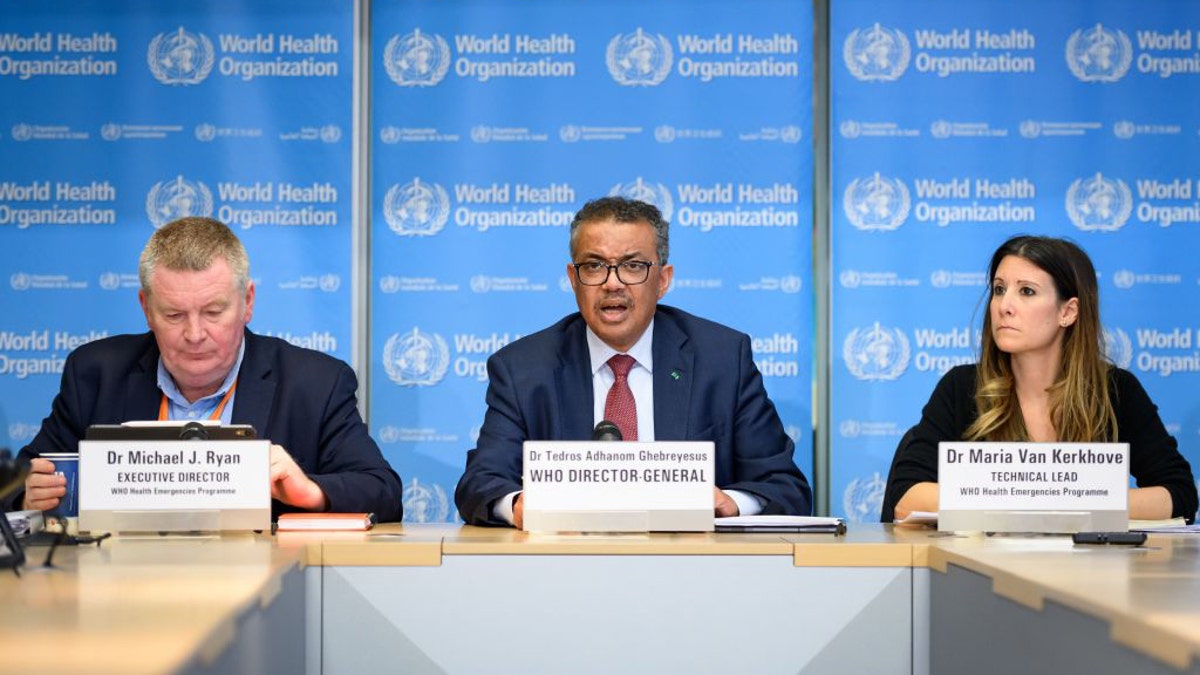New coronavirus cases continue to crop up as US officials work to contain outbreak
The World Health Organization says the number of new COVID-19 infections is now 17 times greater outside China than in it, with major outbreaks growing in South Korea, Italy and Iran; Jonathan Serrie reports from Atlanta.
Officials with the World Health Organization (WHO) said Friday that global cooperation amid the ongoing COVID-19 outbreak is essential to stem the spread of the coronavirus as the number of confirmed cases nears 100,000.
WHO Director-General Tedros Adhanom Ghebreyesus, speaking at Friday’s briefing from Geneva, urged all countries to make “containment their highest priorities,” adding that slowing the spread of COVID-19 “saves lives and buys time” for hospitals, the general public, and the development of treatment.
“Every day [the epidemic is slowed] is another day closer to having vaccines and therapeutics,” Tedros said.
CLICK HERE FOR FOX NEWS' CONTINUING CORONAVIRUS COVERAGE
In addition to urging containment, Tedros said WHO would be publishing a set of protocols, or a “roadmap,” for countries conducting studies into the novel coronavirus, adding that France and South Africa have already indicated that they plan to use the protocols for clinical trials.

Health Emergencies Programme Director Michael Ryan, WHO Director-General Tedros Adhanom Ghebreyesus, and WHO Technical Lead Maria Van Kerkhove brief the press on COVID-19 at WHO headquarters in Geneva on March 6. (Fabrice Coffrini/AFP via Getty Images)
The WHO director-general urged all countries to “do the same,” saying it was “vital that countries coordinate.”
“In a globalized world, the only option is to stand together,” Tedros said. “All countries should make sure that we stand together. … COVID-19 is a common enemy, and the only way we can beat [it] is to stand together.”
Maria Van Kerkhove, epidemiologist and the technical lead of WHO's Health Emergencies Program, added that the “focus” should remain on countries helping each other, as they have during previous outbreaks such as MERS.
MORE CORONAVIRUS CASES CONFIRMED IN TEXAS, BRINGING TOTAL TO 5
During the briefing, Michael J. Ryan, the executive director of WHO's Health Emergencies Program, responded to questions of whether or not the coronavirus might slow amid warmer weather, saying it’s best not to “make that assumption” at this point.
“We do not know yet what the activity or behavior of this virus will be in different climatic conditions,” Ryan said. “[There is] no evidence right now to suggest that that will happen.”
TRAVELING AMID THE OUTBREAK: WHAT YOU NEED TO KNOW
Officials discussed the possibility of reinfection as well, though they said it was not clear if those who reported being reinfected with COVID-19 had actually contracted the virus again, or if it had remained in their systems following a faulty test. Kerkhove added that additional studies were needed to determine the precise time frame that an infected person might be “shedding” or remain infectious.
She also said it was “critical” to practice proper protection and prevention practices amid the outbreak, including handwashing, “respiratory etiquette” (e.g., coughing or sneezing into your elbow) and educating family and friends on such practices.
CORONAVIRUS FITS CRITERIA FOR 'DISEASE X,' WHO EXPERT SAYS
During the briefing, Tedros also mentioned he was aware of new treatments and testing methods on the horizon, including 40 diagnostic tests, 20 possible vaccines in development, and “many” clinical trials of therapeutics. He did not give a time frame for the release or implementation of these methods.
“We are all in this together, and we all have a role to play," Tedros urged. "Facts, not fear. Reasons, not rumors, Solidarity, not stigma.”









































